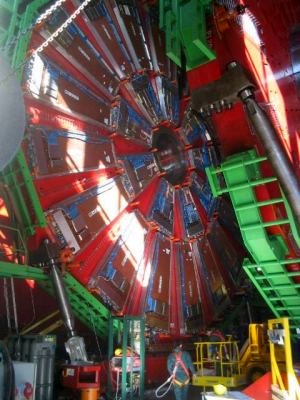Experimental physics
It appears there has been a misunderstanding or a mix-up in the request. "Bánh tráng nướng" is a Vietnamese street food item, often referred to as Vietnamese pizza, and does not relate to "Experimental physics," which is a branch of physics concerned with the observation of physical phenomena and experiments. Given this, I'll provide a structured response for both topics separately, as they do not directly relate to each other.
Bánh Tráng Nướng[edit | edit source]
Bánh tráng nướng is a popular Vietnamese street food, commonly known as Vietnamese pizza. It is a unique snack that combines elements of traditional Vietnamese cuisine with influences that might remind one of Western-style pizzas.
Ingredients and Preparation[edit | edit source]
The base of bánh tráng nướng is a rice paper (bánh tráng), which is grilled over charcoal. The rice paper is then topped with a variety of ingredients, including beaten eggs, spring onions, shrimp, pork, and various seasonings. Cheese and mayonnaise are sometimes added to cater to different tastes, especially to appeal to younger generations or tourists looking for a fusion of flavors.
Cultural Significance[edit | edit source]
Originating from the streets of Vietnam, bánh tráng nướng has gained popularity for its unique taste and the experience it offers. It is not only a testament to the creativity in Vietnamese street food but also reflects the adaptability and fusion of global culinary traditions with local tastes.
Experimental Physics[edit | edit source]
Experimental physics is a branch of physics that focuses on the observation of physical phenomena and conducting experiments to test theories and discover new properties of matter and energy. It is one of the fundamental methods of scientific inquiry, alongside theoretical physics and computational physics.
Techniques and Tools[edit | edit source]
Experimental physicists employ a variety of techniques and tools to measure physical quantities, from simple instruments like thermometers and voltmeters to complex particle accelerators and laser systems. Experiments can vary in scale from tabletop setups in university laboratories to large international collaborations, such as those conducted at the Large Hadron Collider.
Fields of Study[edit | edit source]
Experimental physics encompasses a wide range of fields, including but not limited to:
- Particle physics: The study of the fundamental particles of the universe and their interactions.
- Condensed matter physics: The study of the physical properties of solid and liquid matter.
- Astrophysics: The study of the physical properties of celestial objects and phenomena.
- Quantum mechanics: The study of matter and energy at the smallest scales.
Challenges and Developments[edit | edit source]
One of the main challenges in experimental physics is the design and construction of experiments that can accurately test theoretical predictions, often requiring innovative technology and methodologies. Recent developments in areas such as quantum computing and nanotechnology have opened new avenues for experimental research, pushing the boundaries of what is possible to observe and measure.
Search WikiMD
Ad.Tired of being Overweight? Try W8MD's physician weight loss program.
Semaglutide (Ozempic / Wegovy and Tirzepatide (Mounjaro / Zepbound) available.
Advertise on WikiMD
|
WikiMD's Wellness Encyclopedia |
| Let Food Be Thy Medicine Medicine Thy Food - Hippocrates |
Translate this page: - East Asian
中文,
日本,
한국어,
South Asian
हिन्दी,
தமிழ்,
తెలుగు,
Urdu,
ಕನ್ನಡ,
Southeast Asian
Indonesian,
Vietnamese,
Thai,
မြန်မာဘာသာ,
বাংলা
European
español,
Deutsch,
français,
Greek,
português do Brasil,
polski,
română,
русский,
Nederlands,
norsk,
svenska,
suomi,
Italian
Middle Eastern & African
عربى,
Turkish,
Persian,
Hebrew,
Afrikaans,
isiZulu,
Kiswahili,
Other
Bulgarian,
Hungarian,
Czech,
Swedish,
മലയാളം,
मराठी,
ਪੰਜਾਬੀ,
ગુજરાતી,
Portuguese,
Ukrainian
Medical Disclaimer: WikiMD is not a substitute for professional medical advice. The information on WikiMD is provided as an information resource only, may be incorrect, outdated or misleading, and is not to be used or relied on for any diagnostic or treatment purposes. Please consult your health care provider before making any healthcare decisions or for guidance about a specific medical condition. WikiMD expressly disclaims responsibility, and shall have no liability, for any damages, loss, injury, or liability whatsoever suffered as a result of your reliance on the information contained in this site. By visiting this site you agree to the foregoing terms and conditions, which may from time to time be changed or supplemented by WikiMD. If you do not agree to the foregoing terms and conditions, you should not enter or use this site. See full disclaimer.
Credits:Most images are courtesy of Wikimedia commons, and templates, categories Wikipedia, licensed under CC BY SA or similar.
Contributors: Prab R. Tumpati, MD


